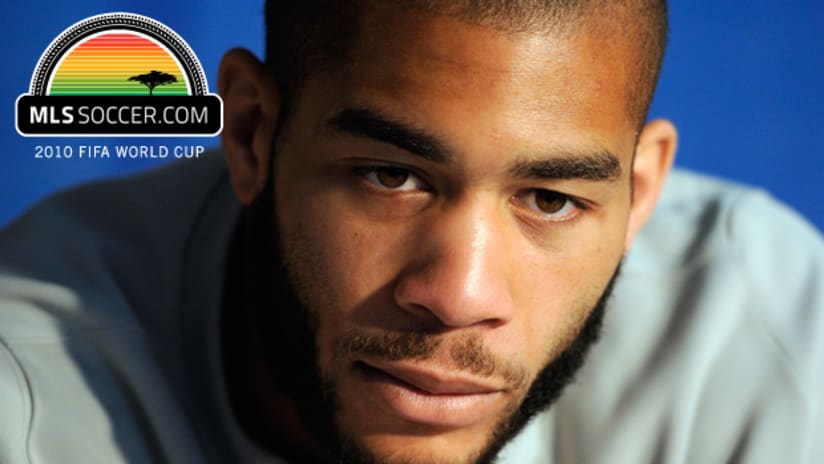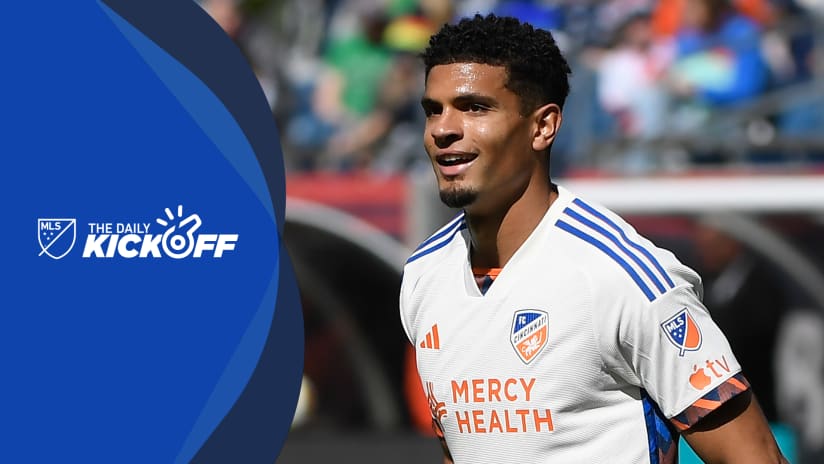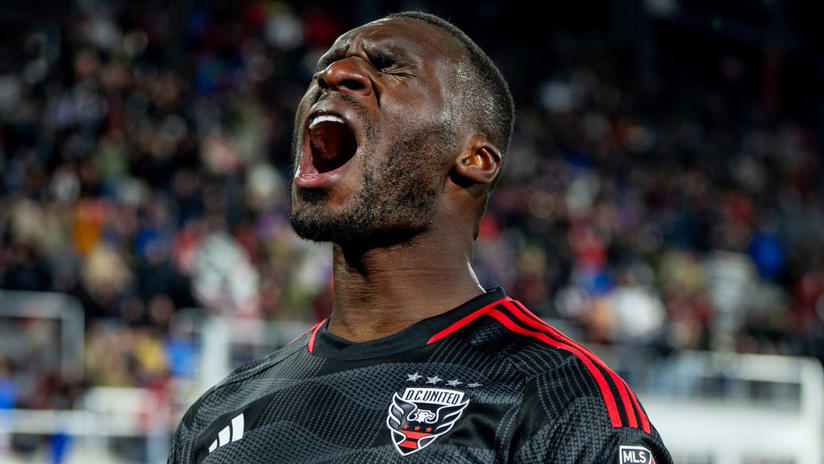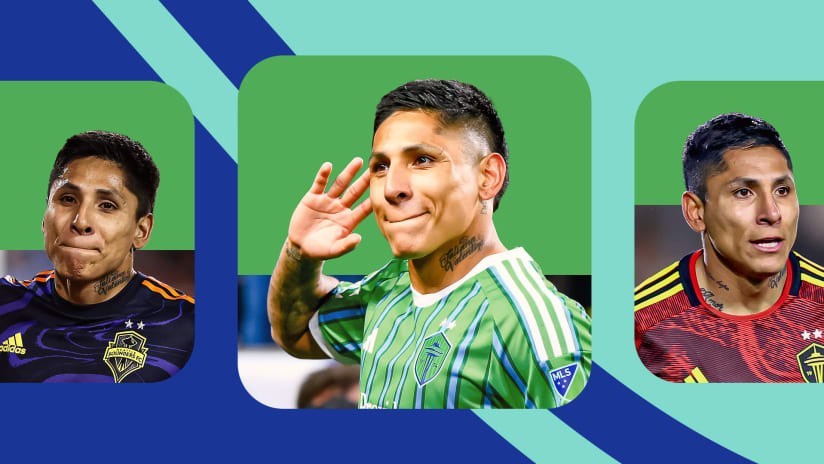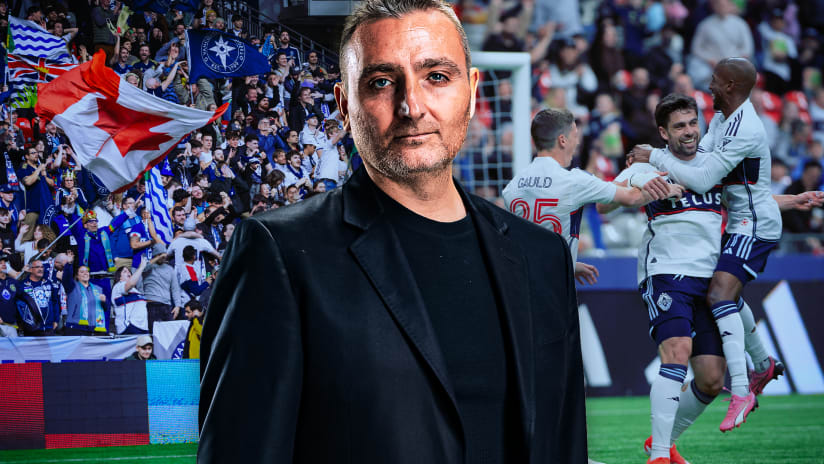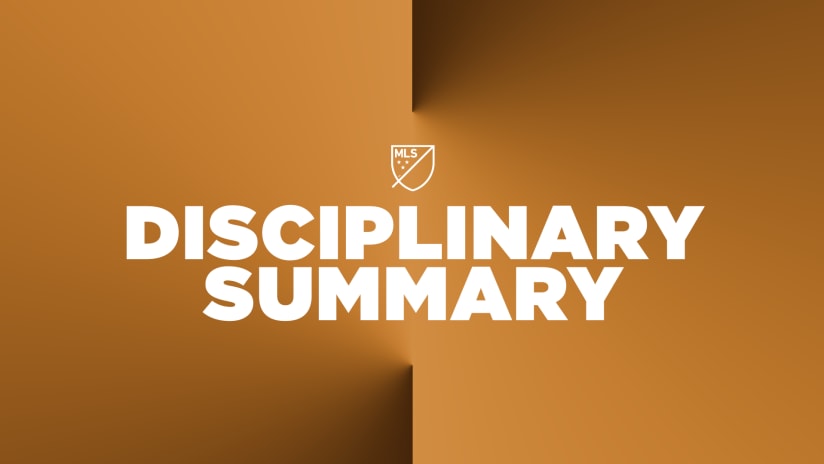PRETORIA, South Africa — The United States soccer team has a problem in Pretoria. Actually it has two, and they are both attached to a certain, unusually well-muscled center back. We’ll call it the Onyewu issue.
Problem No. 1 is that Oguchi Onyewu just isn’t quite where he needs to be; the toxin isn’t in his physical ability to perform. Indeed, that problematic knee has held up with apparent aplomb. Rather, it’s his reactions and his timing that just aren’t tip-top level. The polish and precision on reading the game is dialed down a notch or two from where it needs to be. He’s not awful (even if he’s surely had a couple of awful moments). But this is a World Cup, and that little notch or two matters. The slightest nick in the CD is going to cause an ugly skip in the music at this level.
And that brings us to Problem 1A: US manager Bob Bradley doesn’t really have a better option.
At this point, he’s gambled on Onyewu. He made his best move and, frankly, it hasn’t worked out exactly as planned. But now that the cards have been played, Bradley doesn’t have much choice but to see through the hand.
Onyewu simply doesn’t look up for the job—but it may be more dangerous at this point for Bradley to make a change.
Algeria await. So does a chance to move on in this tournament. The match is massive, to say the least, because getting into the second round was everything that really mattered in the entire South African campaign.
The United States have conceded three goals here, and Onyewu’s big paw prints are all over each one. Oh, there’s blame to go around on each, to be sure. Landon Donovan, Jose Torres and even Carlos Bocanegra could have been quicker into the breach on Slovenia’s opener Friday, the long-range effort. And Michael Bradley needs to bear some responsibility for No. 2, for he was rather naïve in rampaging into a tackle attempt near midfield. Having moved forward in such a manner, he needed a better effort in the tackle, and it all started when he didn’t get as committed to the action as he absolutely needed to be.
Back in the match against England, others were certainly involved in the notorious “fiasco in the fourth.” But it was Onyewu who instigated the defensive domino effect by rashly moving out to meet Wayne Rooney, jumping to target too early and exposing a big gap.
Suffice to say, Onyewu is the common factor in the trio of goals—and that cannot be insignificant.
It’s not just the goals that simply aren’t AAA level. It’s his positioning on crosses, which is sometimes less than ideal. It’s some of his choices to hammer some balls out of bounds when maybe he needs to work it a little more, or be in a better position to do so as the sequence begins.
It starts here: if you asked yourself the following question, what would the answer be? Remember, again, we’re talking about a World Cup. We’re talking about the most important game the United States have played since four years ago, when the stakes were the same against Ghana, a no-nonsense, win-or-go-home proposition:
“Are you confident that your top center back will make all the plays he needs to make?”
And that’s the Onyewu issue. Because I suggest that the answer is “no.” Not an unequivocal one, but a “no” nonetheless.
So, is there a better solution? I’d say you just keep that same “no” right on the table.
Clarence Goodson has made tremendous progress in his game since he left MLS. Mostly on the mental side, for he always had skill and physical ability. But he’s hardened himself and he earned his spot on the final 23 with good work over the last year in a US shirt. He does things he didn’t do previously at FC Dallas. He muscles his way through screens on restarts and he doesn’t waste mental energy admonishing forwards who fall too easily and such.
All that said, is a win-or-else in the World Cup cauldron where you want to season Goodson in his first major high-pressure test? That’s a stretch.
Bradley could recall Carlos Bocanegra into the middle, and there’s some value in that. But then the trickle-down effect becomes an issue. Now, not only are you switching out center backs mid-stream, you’re asking one of the Jonathans, Bornstein or Spector, to introduce himself comfortably into a World Cup in progress.
Could they do it? Sure.
Is there a risk in asking them to? You betcha.
Bocanegra could help solidify the entire defensive work in one way, for there appears to have been some flagging communication here and there over two matches in South Africa. Something was darn sure lost in translation on Slovenia’s second, when Onyewu was 6-8 yards behind the rest of the back line, an unwitting lone wolf in allowing Zlatan Ljubinankic a dreamy chance to go break in free on Tim Howard.
That was the cementing moment on the Onyewu issue. At this level, teams need to be difficult to break down. If Onyewu is playing balls into touch rather than working the distribution channels, or if he allows a player turn when he should have been closer, those are mistakes that won’t necessarily be punished, at least. But in this example, well, it’s just this side of outright ridiculous. It looked like he was playing old-school sweeper. It’s not even about holding a line and looking for offside at that point. That’s somebody who just got lost in the moment. That’s somebody who didn’t play a match for eight months.
After one of the friendlies, he seemed offended when a reporter asked him about feeling “any rust out there.” His quick retort said it all. “Did you see any rust?”
Well, yes. We all did. Still do. But there doesn’t appear to be a better remedy at hand. So Bradley will likely keep on keeping on and hope for the best. It’s not ideal in such a biggie, but there it is.

